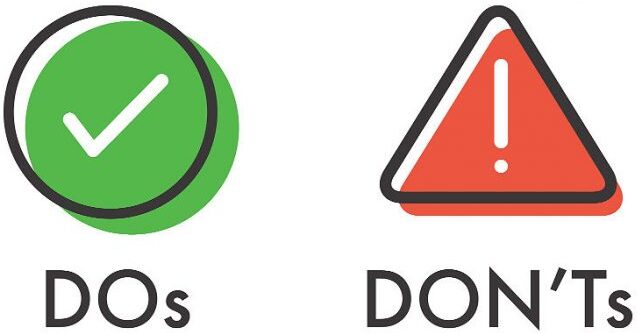Do's and don'ts for housing providers and property managers as eviction moratoriums end or wind down


If I did something wrong during the pandemic like demanding rent during certain time periods when this was not allowed, failing to provide required disclosures or other procedural mistakes, I will attempt to correct them.
There was an ever-changing regulatory regime during the pandemic and we know many in our community of housing providers did not follow (or comprehend) the rules to the letter. With the assistance of Bornstein Law, we can conduct a forensic history of the tenancy and identify any errors before a tenants’ attorney spots them. Once we know which mistakes have been made, we can rectify them.

If my tenant owes me lots of rent debt, I will not harass them or resort to "self-help" eviction measures.
We understand that there is a lot of pent-up frustration, especially when the tenant owes $80K or more, but housing providers are urged not to be overly exuberant. This will only ensure that the eviction action will be prolonged or that the plaintiff (landlord) will lose in court. Worse yet, the landlord can face substantial financial penalties, the likes of which are even more punitive under local anti-harassment ordinances.

If I did something wrong during the pandemic like demanding rent during certain time periods when this was not allowed, failing to provide required disclosures, or other procedural mistakes, I will attempt to correct them.
There was an ever-changing regulatory regime during the pandemic and we know many in our community of housing providers did not follow (or comprehend) the rules to the letter. With the assistance of Bornstein Law, we can conduct a forensic history of the tenancy and identify any errors before a tenants’ attorney spots them. Once we know which mistakes have been made, we can rectify them.

I will not demand late fees unless permitted under local ordinances.
Consider it interest as if borrowing money. If a tenant is late on their rent, he or she is holding up the landlord's money, so a late fee can be charged, right?
In some locales, think again. Reasoning that distressed renters should not be penalized for missing rent during hard times, there are some cities that put a cap on late fees or ban them altogether.

I will be careful when raising rents and pay close attention to local restrictions on rent increases.
County and city governments may limit rent increases if they are allowed at all.

For an astronomical amount of rent owed, I will consider going to Superior ("regular") Court to collect COVID-related rent debt, rather than going to small claims court.
Although small claims may be an inexpensive, expeditious option for those of you with relatively small amounts of rent debt, housing providers will have greater due process in regular court with the added advantage that an attorney can represent the plaintiff.

When a tenant declares a COVID-related hardship, I will look for indicators that he or she does not have a financial hardship so that this assertion can be later challenged in court.
Most recently, our client obtained a judgment to recover possession of the unit and was awarded monetary damages after a client asserted a COVID-related hardship. We presented compelling evidence to show that the defendant's claims were without merit.

Although I haven't been paid rent in a long while and I need the cash, I will not deposit a future rent payment after the unlawful detainer action has commenced.
Accepting money after the eviction process has started is a surefire way to lose the case - we have to start over again because as soon as money exchanges hands, the tenancy begins anew. If you’ve committed this cardinal sin, we should return payment so that the unlawful detainer action can proceed.

If there is violence, drug dealing, or other grave threats to public health or safety, I will act without delay in serving a 3-day notice to quit.
We have always been able to remove tenants who are engaging in egregious behavior irrespective of moratoria.

To avoid litigation and be able to rent to a new tenant, I will consider effectuating a voluntary move-out of the problematic tenant through a legal, ethical, and enforceable tenant surrender of possession agreement ("tenant buyout".)
No government edict prevents two parties from entering into an agreement, and it may be more prudent to have a "meeting of the minds" and strike a deal whereby the tenant moves out at their own free will. This may be preferable to engaging in costly litigation.
